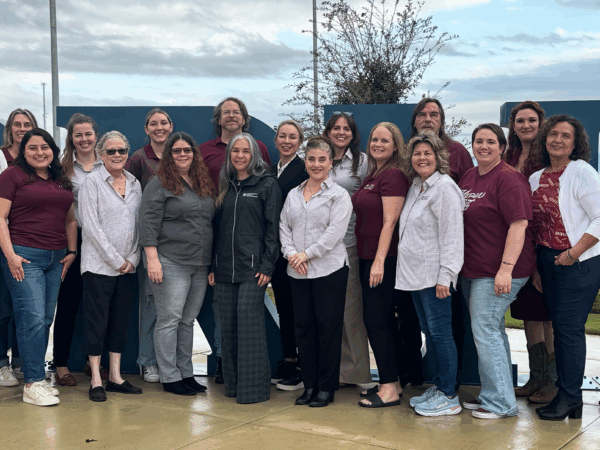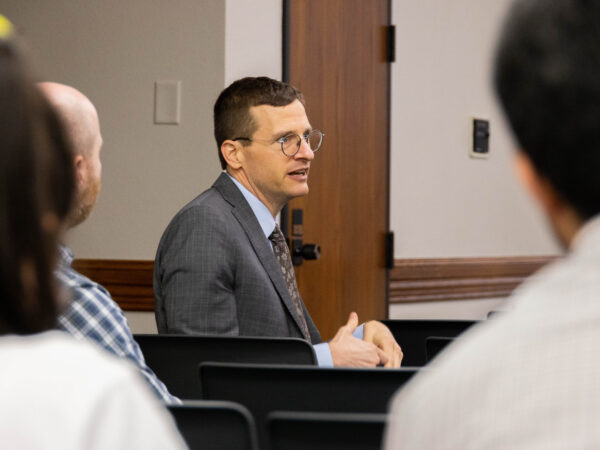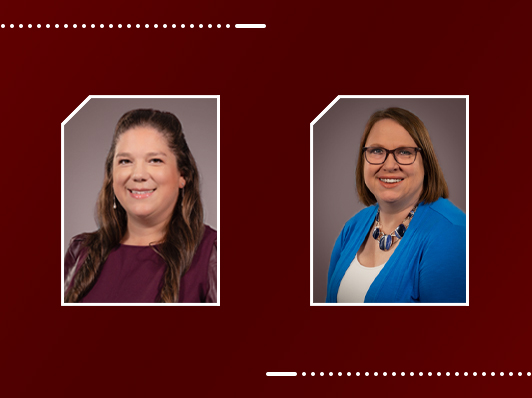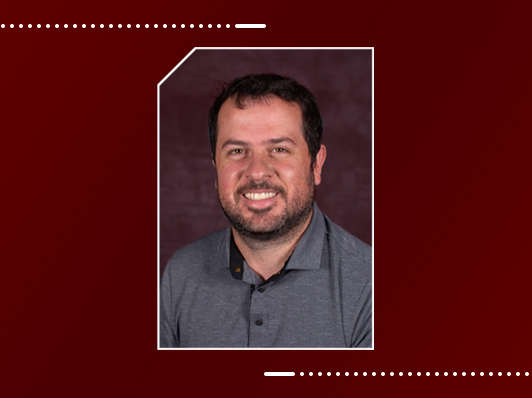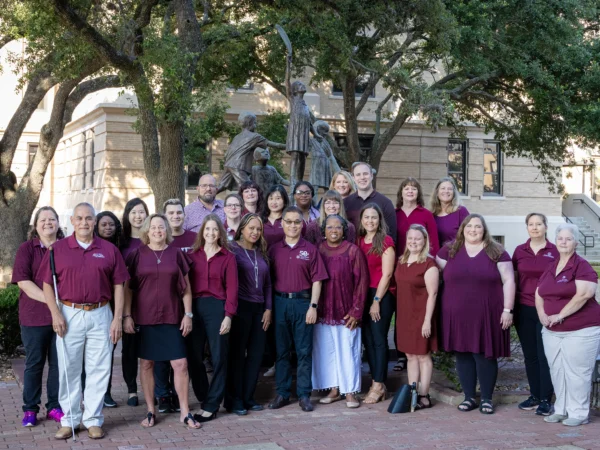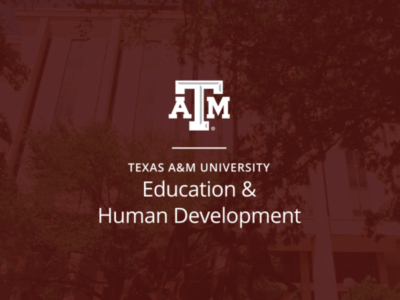Giving Parents Keys To Communication With Autism
One in 68 children born in the United States are diagnosed with autism. Many of these children have complex communication needs, a challenge of particular interest to Dr. Jeni Ganz.
“With communication, it’s critical that we learn all the necessary communication skills in all the different contexts because communication is ubiquitous. We’re doing it all day long. We’re talking, we’re listening to a lecture, we’re reading something on the internet, we’re sending texts,” said Dr. Ganz, special education professor.
Two years ago, Dr. Ganz was awarded two grants from the Texas Higher Education Coordinating Board. One of those grants involved Coach 2 Communicate (C2C), a parent-directed treatment project to provide training and support to parents across the state. She wanted to focus on parent training because parents know their children best are the ones advocating for their children and working with their school districts, year after year.
The first step for parents and caregivers is to complete a two-hour webinar that provides them with the basics about the evidence-based interventions used in the project. If a parent or caregiver is interested in those interventions, they can apply for the individualized intensive training with graduate students who serve as coaches, supervised by Dr. Ganz, the project director.
Over the course of 10 weeks, coaches hold weekly online meetings with parents and caregivers to discuss how they are communicating with their children, implementing the targeted strategies, and their priorities going forward. Parents send videos of themselves using communication strategies with their children so the coaches can give them feedback and note what they are doing well.
“We want to make sure that what we’re offering and providing to them is something that they want and something they find useful,” said Dr. Ganz. “We talk to them about the communication breakdowns at home, what their goals are and what we can target to improve quality of life for them and for their children.”
Once a plan is established, coaches work with parents and caregivers on completing each component. Through recorded videos, the coaches are able to provide weekly feedback and adapt the plan as necessary.
“We’ve seen families really struggle in the beginning, not being able to demonstrate communication skills independently. When we see the video of them closer to the end, it’s beautiful. It looks natural. The child is responding to the parent and communicating better,” added Dr. Ganz.
Some of the data collected during the project is still being analyzed, but parents have reported significant improvements in their children. In the younger children, the parents have identified large gains in communication with adults. For the older children, parents report gains in communication with their peers, in particular.
One thing that makes this project unique is the ability to reach families in rural areas where service providers knowledgeable about evidence-based practices are lacking and low socio-economic status families who would not otherwise be able to access these services. No in-person meetings are required and all training is done over the phone and online.
“For me, the best part is that I can talk with the parents with the use of technology. I can talk with them and model how to work with their children. We can give them feedback through the videos they recorded. We not only correct what they are doing, we provide them positive reinforcement,” said Ching-Yi Liao, a special education doctoral student who is the project coordinator and parent coach.
Parents or legal caregivers who have children with autism up to age 22, and who live anywhere in Texas, are invited to participate. Parent coaching is available in English, Spanish, Chinese and Thai. You can find the application at autism.tamu.edu. For more information, email tamuauparent@tamu.edu.
About the Writer
Ashley is the Media Relations Coordinator and responsible for news coverage in the Department of Teaching, Learning and Culture as well as the Department of Educational Psychology.
Articles by AshleyFor media inquiries, contact Ashley Green.


